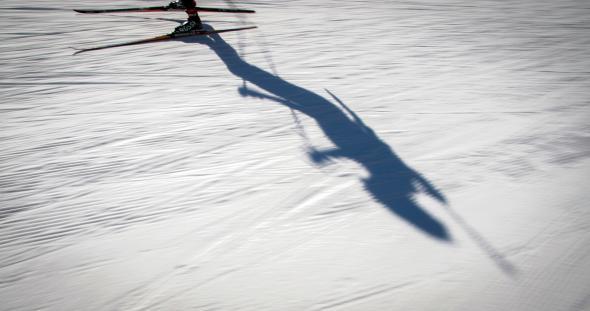Of all the #sochiproblems, real and fictional, afflicting these Olympic Games, the most easily anticipated one was the weather. Way back in 2010, Boris Nemtsov, former deputy prime minister-turned-opposition leader and a Sochi native, told me:
In all of Russian history, I can think of only one example as crazy as this. After he visited Iowa, Khrushchev, told farmers around Murmansk, above the Arctic Circle, to grow corn in the frozen tundra. Putin is now repeating Khrushchev’s experience.
He has found one of the only places in Russia where there is no snow in the winter. He has decided to build these ice rinks in the warmest part of the warmest region. Sochi is subtropical. There is no tradition of skating or hockey there. In Sochi, we prefer football, and volleyball, and swimming.
Not surprisingly, the weather conditions have been a bit of an issue in Sochi, where it hit a high of 61 degrees Fahrenheit today.
Things are colder up in the nearby mountains where the ski events are taking place, but McClatchy reports that officials have still been forced to go with “plan B”: They “broke out snow stored from last winter” and “applied it to courses that needed it at the mountain venues in Krasnaya Polyana.” The decision may have been prompted by a number of complaints over the last few days about slush on the snowboard halfpipe. The course was reportedly in much better shape last night.
How, exactly, do you “store” snow? According to Popular Science, “In 2013, workers pushed about 28 million cubic feet of artificial and natural snow into massive piles and covered it with thick reflective blankets to reduce melting. Snow from these reserves, located high in the Caucasus Mountains, can be transported down to the ski jump as needed.”
It may be easy to chalk the situation up to Putin and the IOC’s folly in holding the Winter Olympics in Sochi, but these games may also be a sign of things to come for the Winter Olympics in an era of global warming.
Over the weekend, the New York Times featured an extremely depressing article by Porter Fox on the “end of snow.” Fox wrote that according to climatologist Daniel Scott, “of the 19 cities that have hosted the Winter Olympics, as few as 10 might be cold enough by midcentury to host them again. By 2100, that number shrinks to 6.” In the Northeastern United States, “more than half of the 103 ski resorts may no longer be viable in 30 years.”
If that’s true, many of the Winter Olympics of the future may look quite a bit more like Sochi, with snow reserves, questionable conditions, and balmy weather—even those not held in summer resorts.
